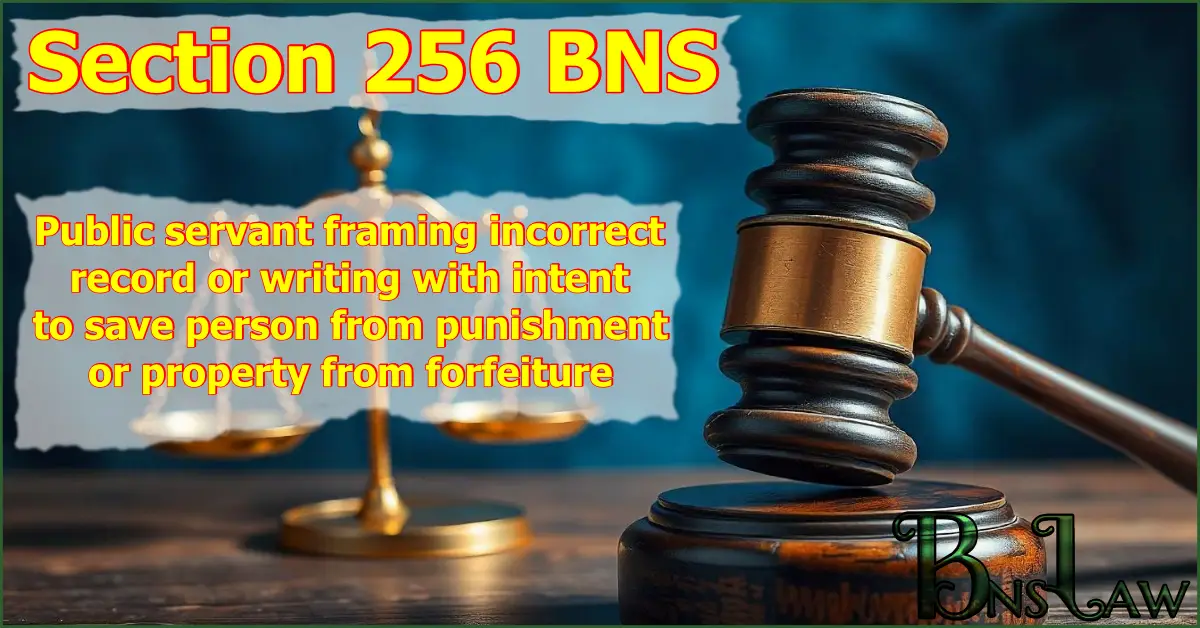Section 256 BNS | BNS 256
Whoever, being a public servant, and being as such public servant, charged with the preparation of any record or other writing, frames that record or writing in a manner which he knows to be incorrect, with intent to cause, or knowing it to be likely that he will thereby cause, loss or injury to the public or to any person, or with intent thereby to save, or knowing it to be likely that he will thereby save, any person from legal punishment, or with intent to save, or knowing that he is likely thereby to save, any property from forfeiture or other charge to which it is liable by law,
shall be punished with imprisonment of either description for a term which may extend to three years, or with fine, or with both.
READ OTHER SECTIONS OF CHAPTER XIV — OF FALSE EVIDENCE AND OFFENCES AGAINST PUBLIC JUSTICE
FAQs of BNS Section 256
-
256 BNS punishment and fine
Punishment and fine under Section 256 of the BNS: Imprisonment for 3 years, or fine, or both.
-
256 BNS cognizable or not
The offence under Section 256 of the BNS is cognizable.
-
256 BNS bailable or not
The offence under Section 256 of the BNS is bailable.
-
256 BNS trial court
Offence specified in Section 256 of the BNS is triable by the Magistrate of the first class.
Important Points
- Cognizable Offences: These are offences where a police officer can arrest a person without a warrant.
- Non-Cognizable Offences: These are offences where a police officer cannot arrest a person without a warrant.
- Bailable Offences: These are offences where the accused can get bail from the police station itself. All bailable offences are listed in the First Schedule of the Bharatiya Nagarik Suraksha Sanhita (BNSS).
- Non-Bailable Offences: Offences in which bail is not granted directly from the police station but after hearing the case in the court, the judge decides when bail will be granted. All non-bailable offences are listed in the first schedule of the Bharatiya Nagarik Suraksha Sanhita (BNSS).
- In the above FAQ, “trial court” means the court that has jurisdiction to try the offence.
- In the above FAQ, the expression “Magistrate of the first class” and “Any Magistrate” does not include Executive Magistrates.
Read other Sections of the BNS
Reference Link: New Criminal Laws (BNS), Ministry of Home Affairs







